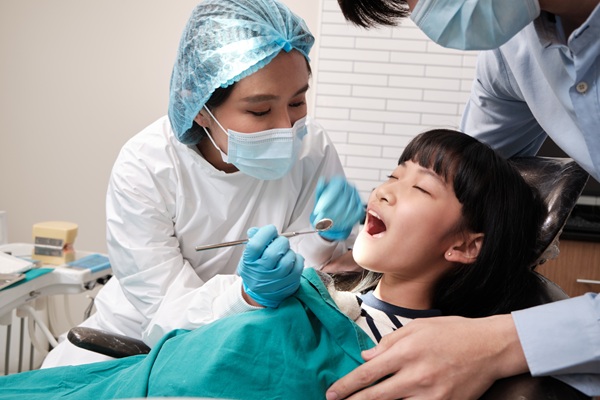A TMJ Dentist Explains Why More Women Suffer From TMJ Than Men

A TMJ dentist focuses on treating temporomandibular joint disorder. Temporomandibular joint disorder, or TMJ disorder, is a condition that occurs when the socket that connects your lower jaw and skull is misaligned or out of place. TMJ disorder is known to be commonly associated with constant headaches, migraines, ringing in the ears, teeth grinding and jaw pain. Despite a lack of scientific research conducted on the issue, women are more likely to develop TMJ compared to men.
Scientists have done some research on the estrogen receptors in the brain as well as jaw tissue. Scientists believe that estrogen in women can cause additional strain on the brain, thus causing the brain to lack the proper ability to navigate or control pain in female TMJ sufferers. Progesterone, a hormone that has been negatively associated with the growth of bone, cartilage and certain proteins in the body, has also been at the forefront of scientists' research agenda.
Stress and vitamin deficiency
Women who are pregnant will often have lowered vitamin levels due to having to supply for two. Researchers have suggested that this lack of vitamins, such as a deficiency in magnesium, can cause issues related to TMJ. Women tend to also be extremely stressed and fatigued while pregnant. This means that they are more likely to clench their jaw or grind their teeth. This does nothing but worsen the issue at hand.
Stress can also negatively affect a female’s hormone balance. This decreases their ability to get a good night's rest. When you fail to sleep, the body cannot produce the proper amounts of dopamine and essential vitamins into the bloodstream. This further worsens the cycle of vitamin deficiency and stress. A TMJ dentist will be able to properly examine the exact issue at hand.
Female jaw structure
The anatomy between a male and a female’s jaw can vary. Female jaw muscles are more prone to injury and increased levels of inflammation and exhaustion. As a result, women tend to receive less blood and less oxygen to their faces: their jaws in particular. When you lack the proper amount of oxygen and blood, your muscles begin to produce additional amounts of lactic acid. Increased levels of lactic acid generally lead to cramping, spasms and pain. A lack of blood means less circulation to the brain. This causes constant headaches and migraines associated with TMJ.
Sleep apnea or lack of sleep
Interestingly enough, women who also have a history of obstructive sleep apnea tend to have increased chances of developing TMJ as well. Sleep apnea causes damage to the brain cells and can actually cause restricted movement in the jaw muscles if not treated in a timely manner. Damage to the brain cells can also cause anxiety and related symptoms to appear as well.
When someone is anxious or depressed, they tend not to eat. When they fail to eat, they tend to lack the proper vitamins to grow and heal. When you lack essential nutrients, you restrict your blood flow and oxygen levels, thus causing TMJ.
TMJ a vicious cycle that unfortunately eats away at more women than men. Contact a TMJ dentist as soon as possible if you believe you are suffering from TMJ.
Request an appointment here: https://www.lightbreezedental.com or call Light Breeze Dental at (949) 274-4719 for an appointment in our Irvine office.
Check out what others are saying about our dental services on Yelp: TMJ Dentist.
Recent Posts
To find a dentist both parents and children feel comfortable with can be a challenge, but it is not impossible. It may seem hard to think of a trip to the dentist as a family affair, but everyone should be on the same page when it comes to oral health. Consistency in oral health cleanings…
The American Association for Pediatric Dentistry recommends taking your child to a dentist for kids before the age of one. At this point, some of their teeth should have erupted, so a dentist can evaluate their development and spot any abnormalities. Issues like a poor bite are easier to address when detected early in life…
A strong relationship with a family dentist gives households a trusted partner in oral health. With regular visits, clear guidance, and practical tips, families learn how to protect their smiles through each stage of life. For instance, daily brushing and flossing, thoughtful food choices, and consistent professional care work together to reduce the risk of…
Mouthwash, or mouth rinse, is commonly recommended by general dentists to add to an at-home oral hygiene routine. These rinses help eliminate harmful bacteria in the mouth that can cause decay, gum disease, and bad breath. However, some individuals have concerns that mouthwash can harm their oral and overall health.There are several types of mouthwash…


